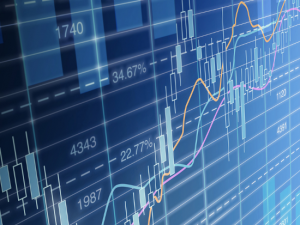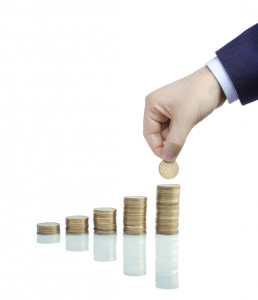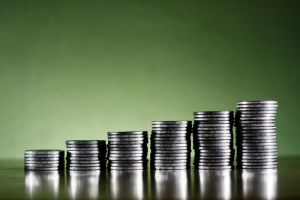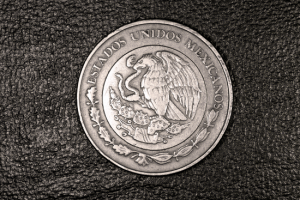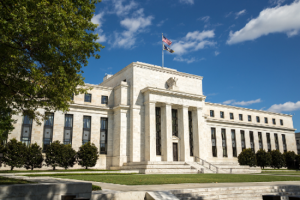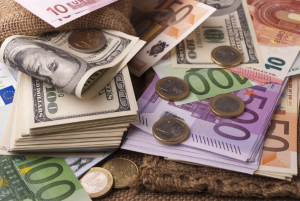The alarms have sounded with the rise of a new Lehman Brothers, only this time on the other side of the Atlantic. Panic has taken hold of investors and a possible new crisis and subsequent global recession is on the horizon; one similar to that of 2007/2008. Deutsche Bank has presented its 2015 year-end report and the results have shown to be a letdown. The largest German bank has reported its first loss since 2008 and not just any loss, but a loss in the excess of 6.8 billion Euros (compared with a 1.7 billion Euro gain in 2014).
Click here to continue readingOn December 31, the Hamburg based German investment bank Berenberg issued a recommendation regarding the Varoufakis Effect and the importance it will have in 2016. The Varoufakis Effect refers to a country’s political risk, often times brought about by government officials and owes its name to Greece’s ex-finance minister, Yanis Varoufakis. Berenberg Bank explains how confidence levels in Greece declined during Varoufakis’s time as finance minister and suddenly picked back up upon his resignation. It is important to make mention of the fact that, in response to this theory, Yanis Varoufakis himself explained that this correlation doesn’t necessarily signify causation. Such a case can be exemplified in Argentina with Mauricio Macri and his taskforce.
Click here to continue readingPublic debt is an increasingly important issue for Mexico. Between January 2014 and December 2015, Mexico’s public debt grew 33%. As Mexico’s debt to GDP reaches 52%, authorities continue to downplay the debt’s importance by pointing out that the debt level is still below that of similar nations. A poor consolation. Below is the debt’s change as percentage of the GDP.
Click here to continue readingFor some time now Guatemalans have vehemently discussed the idea of differential minimum wages as a measure to attract capital to regions where unemployment rates are higher. The debate seems to have lost its theoretical focus and turned into a political issue. In basic economic theory, differential minimum wages themselves are not addressed.
Click here to continue readingOn December 29, 2015 Alejandro Maldonado’s government announced a minimum wage increase of 4% for agricultural and non-agricultural activities and 3.5% for export and “maquila” activities. Even though the public sectors workers and unions are celebrating this wage increase—they believe any increase is not enough—the minimum wage increase could be damaging for the general economy, particularly for private sectors.
Click here to continue readingOne of the most relevant news stories of last year, if not the most important in the world of finance and economics, was the 0.25% increase of the Federal Funds Rate by the Fed on December 16. The increase marks the end of a period where U.S. interest rate had been close to 0%. Furthermore, the Fed announced it would possibly continue to raise interest rates throughout 2016.
Click here to continue readingThe most notable news in the economics and finance world has been the Federal Reserve’s decision to raise interest rates on December 16th. In response to the news, Mexico’s Central Bank raised its interest rate target by 0.25 percentage point.
Click here to continue readingThe Federal Reserve raised interest rates by one quarter of a percentage point last week, the greatest increase in almost a decade. The increase did not take the markets by surprise, as it was already expected to happen following the small crisis in the Chinese stock market. There is fear and anxiety about how increased interest rates could impact the world’s second largest economy.
Click here to continue readingIn the beginning, Spain’s bubble seemed to signal that the housing market could have high returns. This is because since the middle of the 1990s Spain displayed an incipient economic development, a complete industrial reconversion, a large supply of human capital at a reasonable cost (a good cost-to-productivity ratio), and at the same time entered the Euro project.
Click here to continue readingNegative Interest Rates and Exchange Rates: The United States and Europe, What Does the Future Hold?
The Federal Reserve, pursuing growth and unemployment objectives, will likely end the current federal funds policy close to zero at its next meeting. If the Federal Reserve increases the federal funds rate, following unemployment data and changes in last-minute credit, it would exacerbate the difference with the eurozone’s negative interest rates, and possibly, depreciate the euro against the dollar.
Click here to continue readingGet our free exclusive report on our unique methodology to predict recessions


